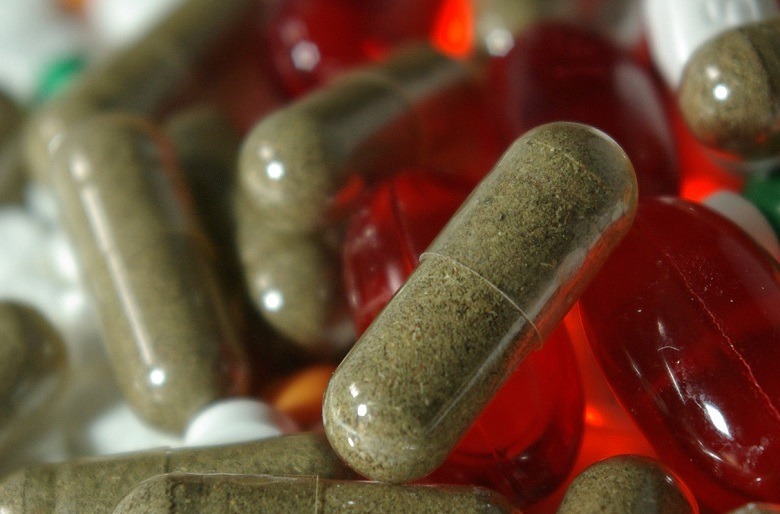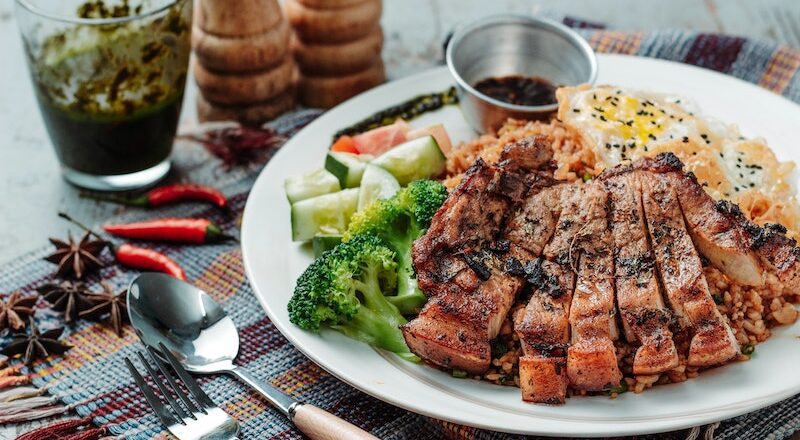
Vitamin B12: myths and legends
There are quite many rumours regarding vitamin B12: some people say it is just an invention, that actually is not needed at all; other people say that it is enough to eat fruit or unwashed vegetables to be able to take it, or that this vitamin is not naturally contained in meat, but it is administered to animals through supplements. Let’s clarify a couple of things and dispel some myths and legends that are spreading through the Web.
First of all, vitamin B12 or cobalamin is the only biological compound containing cobalt, a chemical element which is necessary in the daily diet of all mammals. Vitamin B12 is produced by bacteria and is found in significant amounts only in animal products. There are also some algae, such as spirulina algae, that are erroneously referred to as vitamin B12 sources for vegan diets, but they actually produce an inactive compound which is not absorbable by human intestine.
Also tempeh, a fermented soy product, was wrongly indicated in the past as a reliable source of B12, produced by bacteria during fermentation, until the discover that the amount of this vitamin is very little to be able to cover the daily requirement. The truth is that vitamin B12 is absent from the plant kingdom, (a recent study indicates the dried purple laver, nori, as possible and only source), which explains why people who want a diet completely free of animal products must necessarily take vitamin B12 supplements.
To avoid admitting that a diet expecting to take supplements is not natural, people who follow a vegan diet have spread many inaccuracies about this vitamin, arguing that it is unnecessary to take it because it is produced by bacteria in the mouth or in the gut, or that it is enough to eat fruits and unwashed vegetables.
It is true that some bacteria in the human gut synthesize cobalamin, but they are located in areas where its absorption is very low and therefore takes place in amounts which are not sufficient to cover our needs. In addition, our immune system would have serious problems if we ingest vegetables and fruits not properly washed (unlike the monkeys who can eat soil-dirty fruit with no concerns).
Another popular urban legend is that meat does not naturally contain vitamin B12, but this would be added as a supplement in animal feed, suggesting that even those people who follow an omnivorous diet would indirectly take this vitamin as a supplement, just as vegans do. Far from it.
Polygastric ruminants (cattle, sheep, goats and buffaloes) do not need to get vitamin B12 and other B vitamins from supplements, since bacterial synthesis that takes place in their complex digestive system, allows the production of large amounts of this vitamin. This is the reason why meat and dairy products are naturally rich in B12. In addition to the endogenous production, ruminants also take vitamin B12 from the consumption of forage, silage, hay and grass, full of microorganisms that synthesize it.
Also monogastric animals such as pigs and poultry, take vitamin B12 from “good” bacteria in their living environment, enriching their meat and eggs of this crucial vitamin, whose deficiency in the diet leads to very serious conditions.
The recommended vitamin B12-dose for a healthy adult is 2 mg per day (the dose increases in particular situations, such as in pregnant or breastfeeding women), which we can easily get from 100g of beef (2.78 mg of cobalamin). Spare vitamin B12 is stored in the liver to be used later when needed, and various studies show that it is essential to avoid neuro-psychiatric manifestations, to control mood swings, for proper functioning of the hematopoietic system and proper cognitive and psycho-aptitude development, especially during childhood and adolescence.
Among the diseases associated with vitamin B12 deficiency are pernicious anaemia, a disease characterized by megaloblastic anaemia, which means not effective formation of red blood cells, and nervous system disorders, such as isolated neurological symptoms and neurocognitive dysfunction-syndromes. In addition, high levels of homocysteine in the blood caused by vitamin B12 deficiency would be implicated in cardiovascular diseases.
It has been recently shown that strict vegetarians, and even more vegans, may face an alarming deficit of vitamin B12. Especially when children are forced to follow such restrictive diets, the B12 levels must be monitored carefully and constantly, because it has been scientifically proven that a diet completely free of meat and animal-based food products, if started from early childhood, could have a very negative impact on cognitive development even during adolescence.
Susanna Bramante
Susanna Bramante is an agronomist and scientific writer, author and co-author of 11 scientific publications and numerous articles on human nutrition and its impact on health and environment. In 2010 she received the title of Doctor Europaeus and PhD in Animal Production, Health and Food Hygiene in countries with a Mediterranean climate.





